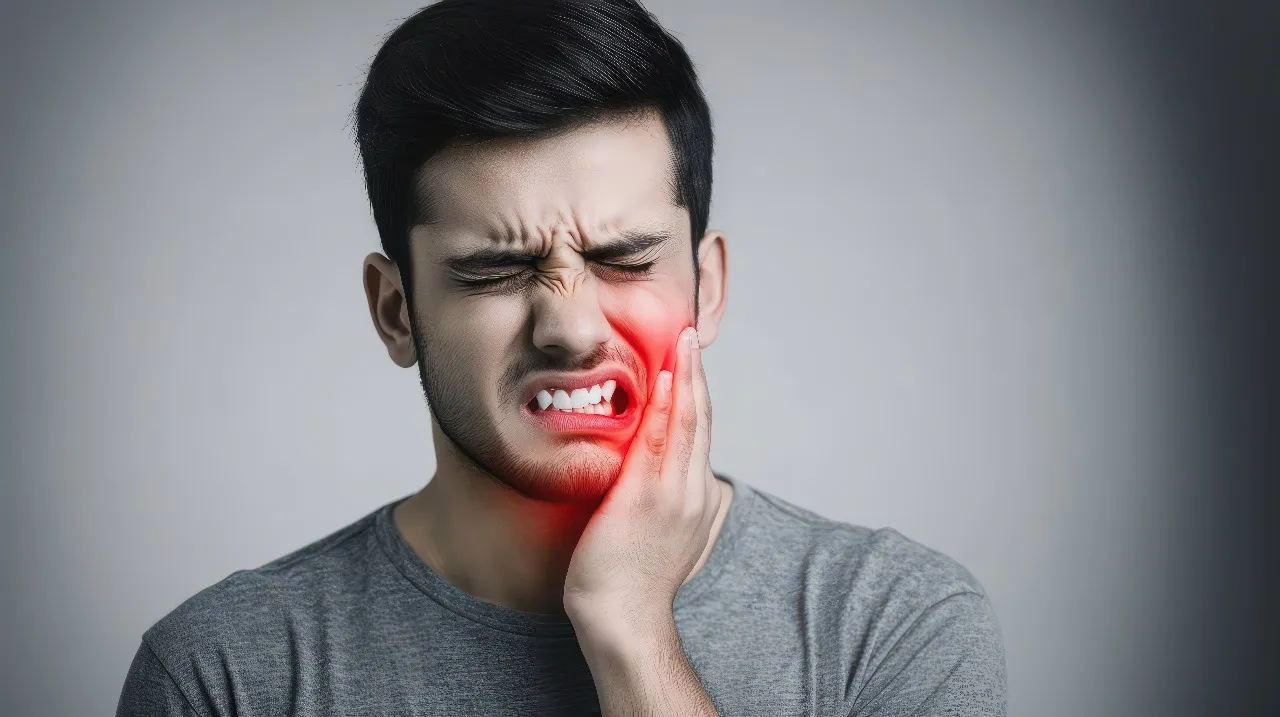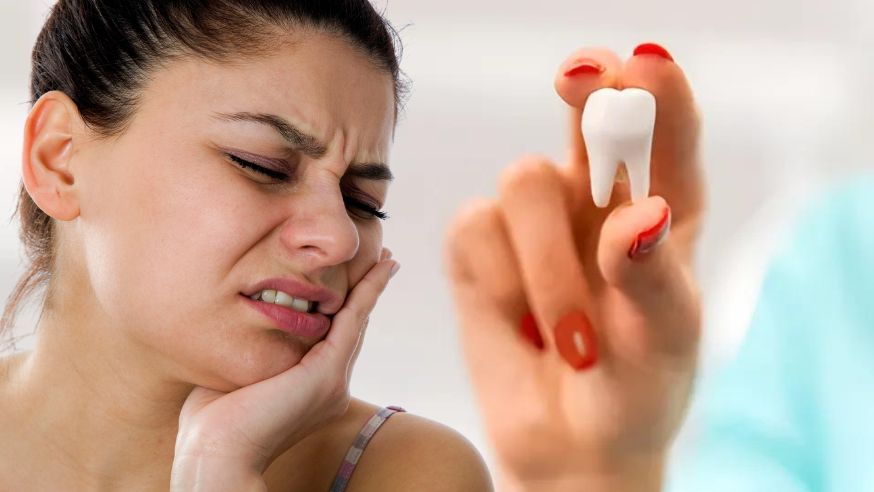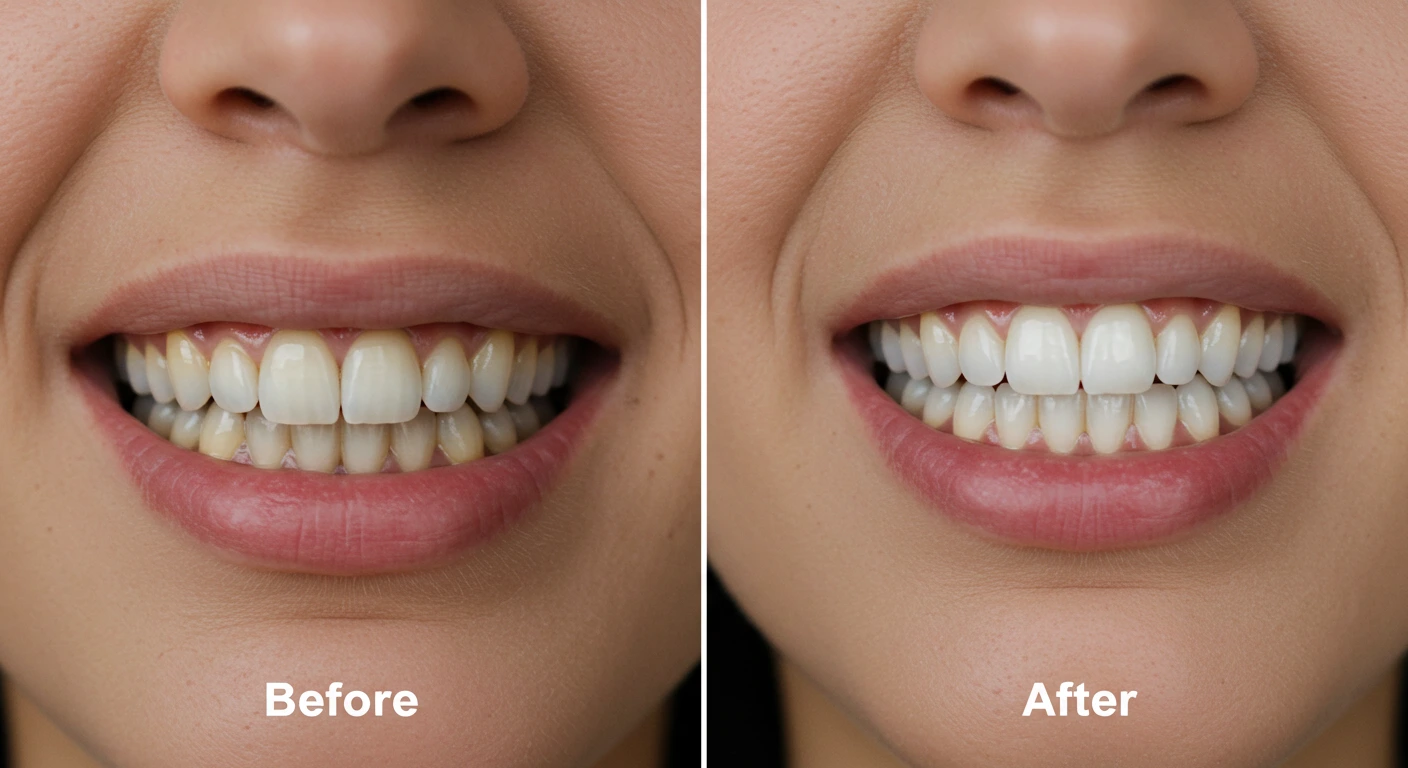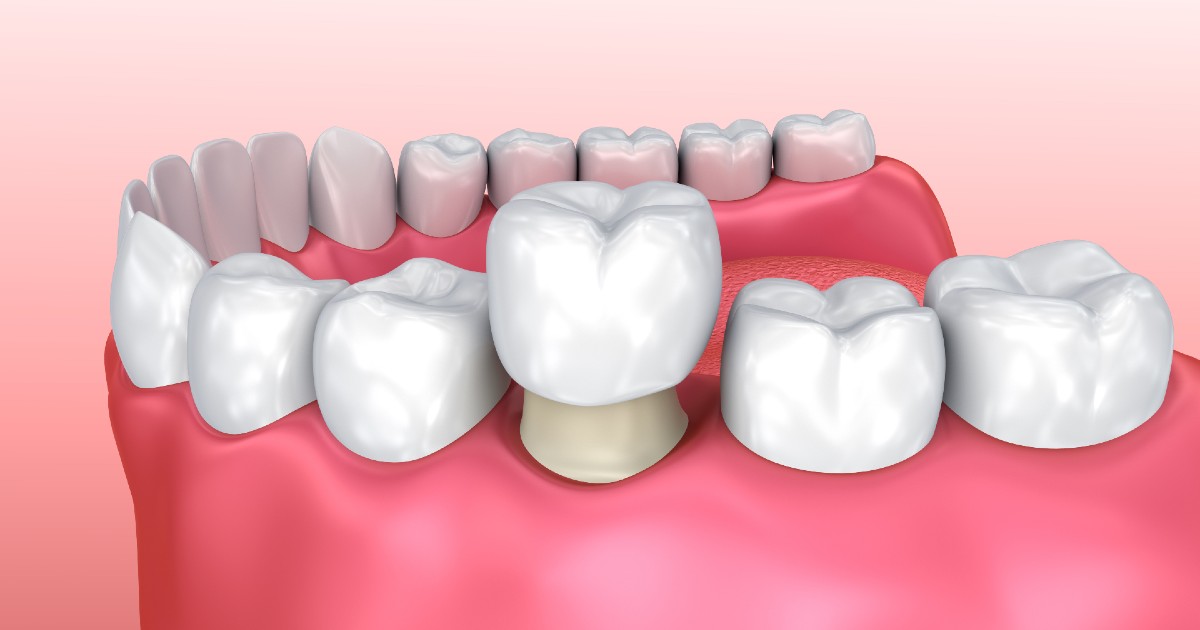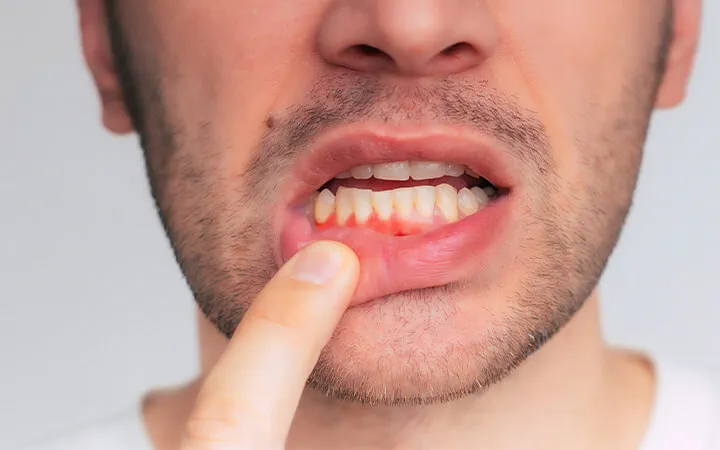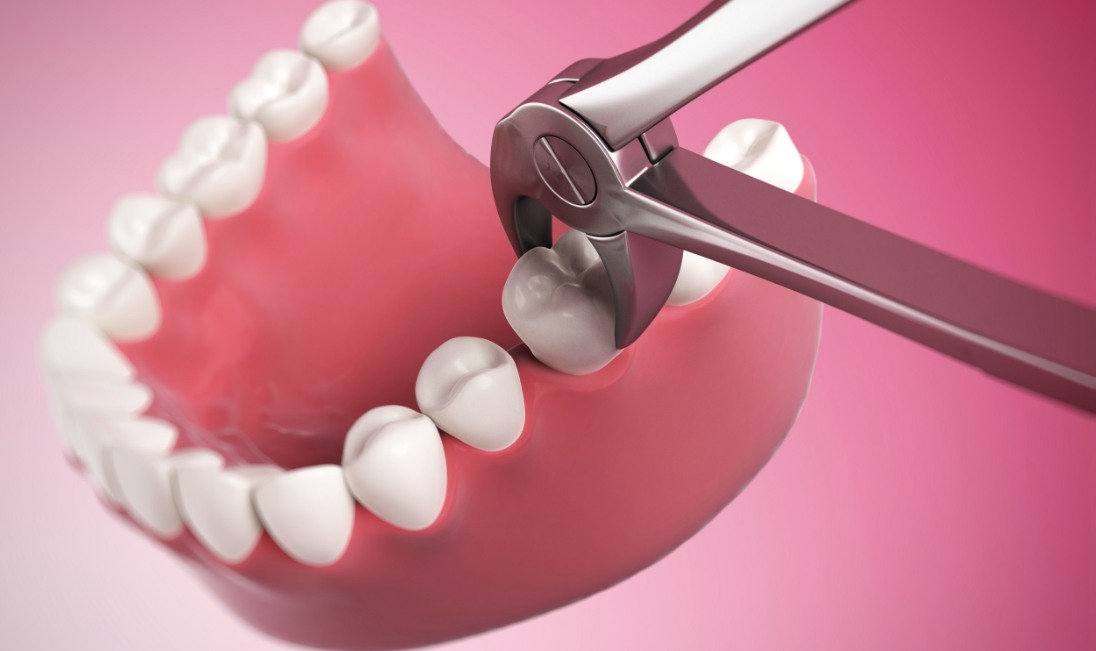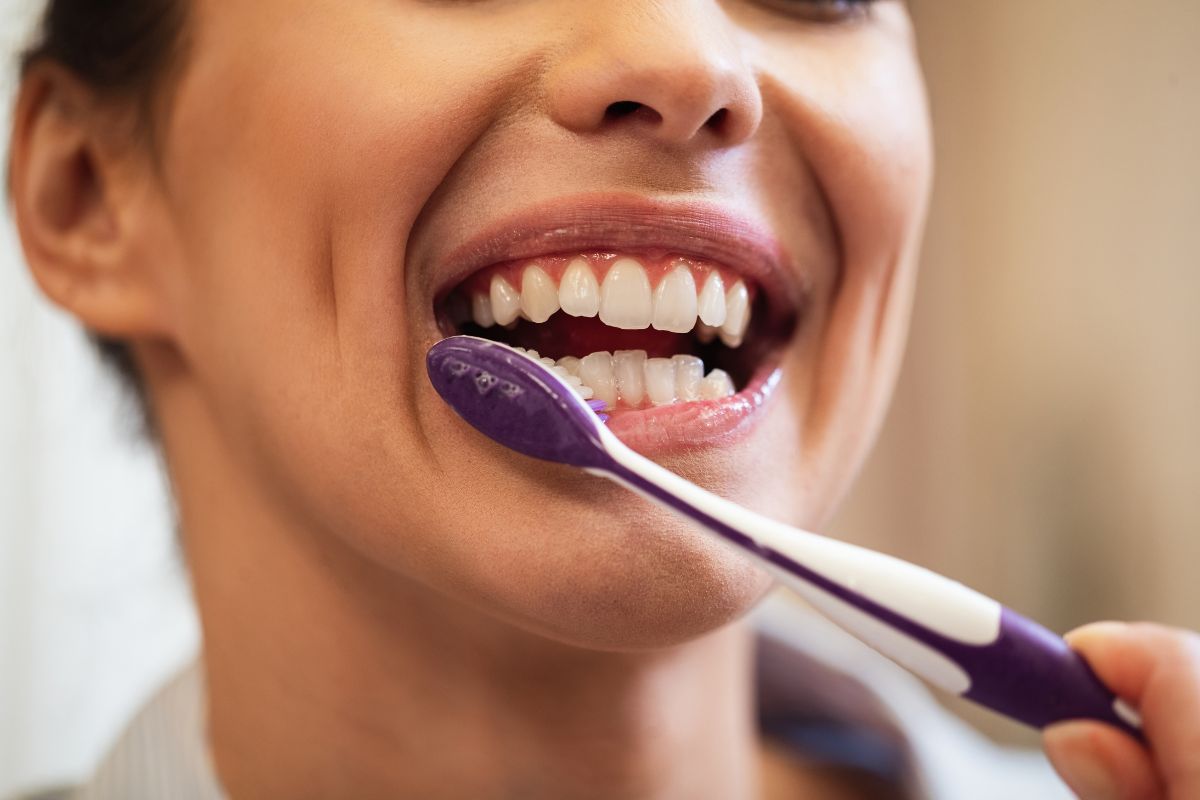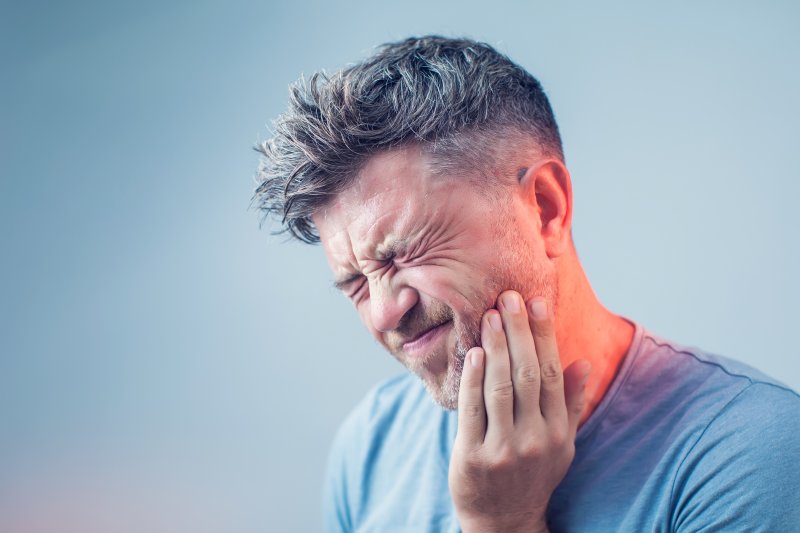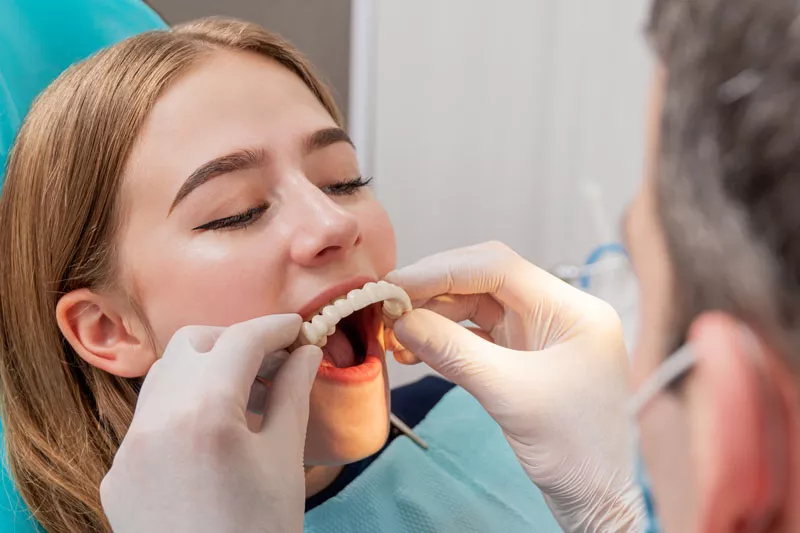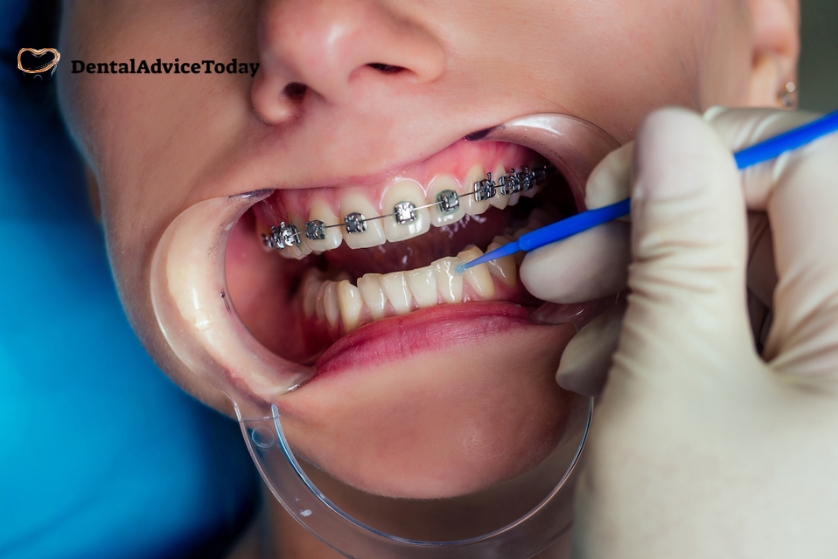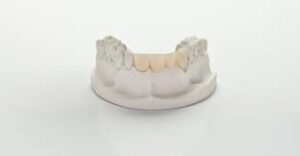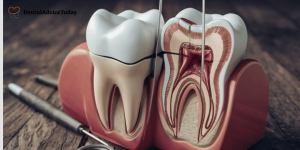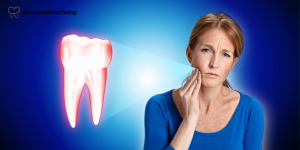A toothache can cause a headache because the trigeminal nerve, which also carries pain signals from the teeth, affects parts of the face as well as the head. Dental problems such as TMJ disorders, cavities, and teeth grinding can also irritate this nerve and strain nearby muscles, leading to tension and referred headaches.
Toothaches do not just hurt your jaw; they also lead to headaches. Oral health also directly affects your overall well-being. This always includes how problems in your mouth can lead to pain in your head. But how to tell if it is a headache and a toothache? Let’s find out can a toothache cause headaches as well as see what you can do about that.
The Relationship Between Toothache & Headache
A toothache can cause a headache in numerous ways. The pain from a tooth infection, grinding, as well as a misaligned jaw, can also trigger a headache, with the pain mostly felt in the neck, temples, and even the sinuses. This is called referred pain, where pain in one area of the body also causes discomfort in another.
The relationship between toothache & headache can also happen due to some factors, including sinus infection, nerves, or jaw muscles. Headaches related to toothaches can happen for a variety of reasons, also including dental infections, TMJ disorders, and bruxism. These conditions can directly as well as indirectly impact the nerves that also cause headaches, also leading to an overlap of symptoms. The key to understanding the relationship is identifying the underlying cause of the toothache.
Key Causes Behind Toothache-Induced Headaches
Several dental conditions can lead to a toothache, causing a headache. Most of the common causes also include.
- Sinus Infection: Sinus infection is not directly related to dental health, which can cause pressure in the sinuses, which is felt as a headache. This pain may also radiate to the teeth, leading to a sensation of tooth pain that always mimics a toothache.
- TMJ Disorders (Temporomandibular Joint): Temporomandibular disorder affects the jaw joint, causing discomfort in the jaw, pain and headaches. This situation can lead to jaw pain, and headaches.
- Teeth Infection (Abscess): A deep cavity as well as untreated dental infection cal lead to an abscess, also causing pain. The infection can trigger pain that also radiates to the head, causing a headache.
Prevention Tips for Toothache and Headache
When you are experiencing a toothache that refers to headaches, it’s important to seek relief for both the dental pain and the headache. Here are some of the effective methods to alleviate the discomfort.
Pain Relief Medication
Over-the-counter painkillers such as acetaminophen as well as ibuprofen can give temporary relief for both the toothache and headache. These medications help reduce inflammation and relieve pain.
Dental Treatment
The best way to treat a toothache-related headache is to treat the underlying dental problem. If the toothache is caused by a cavity, infection, and gum disease, also visiting your dentist for treatment is essential.
TMJ Treatment
If the headache is related to TMJ disorder, your dentist may suggest treatments like physical therapy, stress management, and the use of a nightguard to prevent teeth grinding.
Jaw Relaxation Techniques
If bruxism is the cause of your headaches, also relaxing the jaw muscles can help alleviate pain. Consistently applying a cold compress to the jaw and using warm saltwater rinses can help to reduce muscle tension.
Sinus Treatment
If the headache is caused by a sinus infection, addressing the underlying sinus condition with decongestants and steam inhalation can treating the dental problem can also help alleviate the headache.
Home Remedy for a Toothache Headache
While you can see your dentist, always try these home remedies for a toothache headache:
- Always rinse your mouth with warm water.
- Use dental floss to remove any food bits and plaque between your teeth.
- Consider taking a pain reliever you can also buy without a prescription to dull the ache. But do not place aspirin and another painkiller directly against your gums because it may burn your gum tissue.
- If the toothache is caused by trauma to the tooth, always apply a cold compress to the outside of your cheek.
Key Takeaways
- Toothaches can also trigger headaches due to shared nerve pathways, particularly through the trigeminal nerve.
- Common causes also include dental issues such as cavities, TMJ disorders, teeth grinding (bruxism), as well as sinus infections.
- If you have ongoing tooth and head pain, always seeing a dentist or healthcare provider is key to finding the right diagnosis as well as treatment.
FAQs
How to stop a headache from tooth pain?
Always use pain relief medication to lessen the discomfort. You can also use painkillers such as ibuprofen and acetaminophen. Apply a cold pack on the outside of your cheek near the painful tooth for only 15-20 minutes every couple of hours. It can also reduce pain as well as swelling.
Can a toothache cause a headache?
Yes, a toothache can cause a headache because the nerves in your teeth are interconnected with those in your head as well as your face. This is known as referred pain, where an issue such as an infected or inflamed tooth can also send pain signals along the trigeminal nerve to your brain, resulting in a headache.
Why Dental Pain Can Radiate to the Head?
Dental pain can also radiate to the head due to shared nerves, inflammation from decay or infection, as well as pressure from issues such as impacted teeth and temporomandibular joint (TMJ) disorders.
What does a toothache or headache feel like?
Dental headaches stem from problems such as tooth decay, jaw disorders and gum infections as well as mostly manifest as a persistent, dull ache or pressure around your forehead, jaw or temples. These headaches can also be a double whammy, tagging along with tooth and jaw pain.
